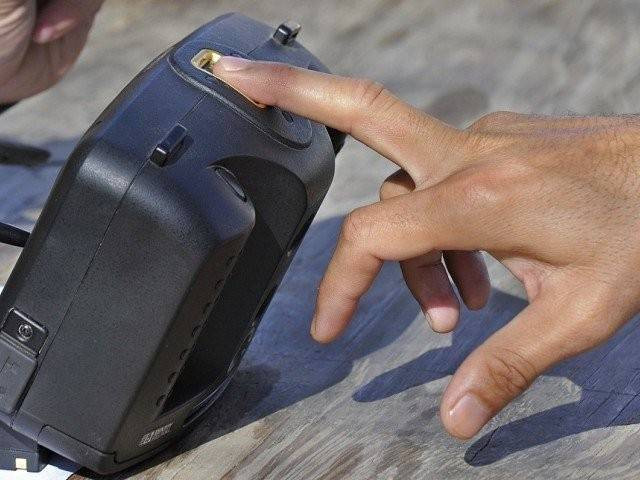SHC orders biometric attendance system in colleges
Sindh govt has two months to implement system

PHOTO: AFP
"The introduction of the biometric system is with an object to overcome the issue of [tardiness] and unauthorised absence of officials, particularly teachers, because such absence may cost an irreparable loss to students," the order read.
Biometric system installed in colleges across province
Upon inquiry, the Sindh secretary of colleges stated that the biometric attendance system has not been launched for college teachers and staff.

The court earlier gave 15 days for the implementation of the system but the additional advocate-general and the acting chief secretary, Rizwan Ahmed Memon, who is the senior member of the Board of Revenue, pleaded for more time. "The tendering process under the PPRA [Public Procurement Regulatory Authority] procurement rules requires time," Memon said. Among the government colleges in Sindh, 146 are for males, 116 for females and 17 for both genders. The acting chief secretary informed the court that 1,611,914 boys and 1,027,413 girls are enrolled in 41,718 primary schools in Sindh while 471,279 boys and 334,835 girls in the secondary schools. In the high schools, 220,662 boys and 119,660 girls are enrolled. The court observed a disparity among the number of students acquiring primary education and those continuing to the higher level.
"The whole picture so far… goes to suggest that focus of Sindh government is only to extent of primary education, which normally cannot give the certificate holder the status of an educated person," noted Justice Panhwar.
Memon acknowledged that the poor are confronted with the problem of distance from their residence to places of higher education. As such, accessible educational facilities shall be provided.
The bench ordered the government to submit a mechanism under which it approved the establishment of schools and colleges in any taluka or district. The order added that if such a mechanism does not exist, one should be formulated on the basis of equity.
Govt criticised over non-functional biometric system
About monitoring of the government schools' performance, the bench noted that budget constraints and a lack of availability of vehicles for monitoring officers constrained their movement. The acting chief secretary sought time for preparation and submission of a mechanism for addressing both the concerns.
The bench directed the additional advocate-general, Allah Bachayo Soomro, to legally satisfy the court on the next hearing regarding why the education works department functions separately from the district administration.
The judges sought a legal justification for centralised functioning of that department under the provincial secretary.
The bench put the chief secretary and secretary education on notice for next hearing to appear in person and reply to an earlier issued show-cause notice. The court will resume the hearing on December 14.
Published in The Express Tribune, November 24th, 2016.



















COMMENTS
Comments are moderated and generally will be posted if they are on-topic and not abusive.
For more information, please see our Comments FAQ